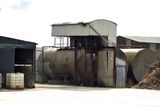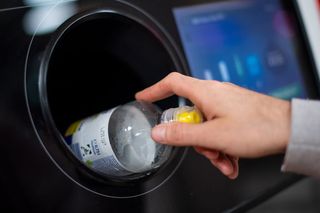Varadkar urges businesses in North to ‘take advantage of current situation’ amid tensions over protocol
Leo Varadkar speaking at the launch of the agrifood scheme at Government Buildings. Photo: Julian Behal
TÁNAISTE Leo Varadkar has urged Northern Ireland to “take advantage of the current situation” amid ongoing tensions over the post-Brexit deal that avoids a hard border.
Mr Varadkar said that companies that produce goods in the North have “full unfettered access” to British and EU markets and suggested this was not currently being exploited.
It comes amid calls from the DUP for the Northern Ireland protocol to be scrapped after the EU controversially tried to invoke Article 16 to nullify the protocol before it swiftly reversed its decision last Friday.
Speaking today, Mr Varadkar acknowledged issues with the protocol and its functioning but said the North should take advantage of the post-Brexit arrangements.
“I think everyone appreciates that there have been some real practical difficulties in implementing it and that’s evident from the fact that some supermarkets in Northern Ireland have had difficulty with supplies. There are issues we are dealing with every day, from yields to steel through to pets and all sorts of different issues,” he said.
Read more
“What the Irish Government wants to do is work with British government, the European Commission, and work with the Northern Ireland Executive, if they can come together on this to iron out and sort out some of those problems.”
He said the Government never wanted any trade borders and said they were a direct consequence of Brexit and that checks would have been avoided if the UK had remained in the customs union and single market.
He said it was “much more practical and much easier” for checks to take place at ports in Northern Ireland and said the only way to change this was a cross-community majority in the Northern Assembly. “That doesn’t exist, that’s the reality of the situation.”
Mr Varadkar said the European Commission’s suggestion it would invoke Article 16 of the protocol last week was “wrong, shouldn’t have happened and was reversed quickly”, but he said it would be “equally wrong” of the UK to do so. “I believe they won’t. I don’t see Article 16 being invoked again either in Brussels or in London,” he said.
He continued: “I would also hope that people will work with industry in Northern Ireland to take advantage of the current situation. Bear in mind somebody can produce goods in Northern Ireland, and they have full unfettered access to both the British market and the (EU) single market, and that's actually one of the bonuses for Northern Ireland that I think people, perhaps, are not exploiting to the extent they could.”
Mr Varadkar condemned threats against staff working at ports in Northern Ireland.
“I think any of us have to condemn utterly anyone who would threaten to do violence to somebody in the course of their work, whether they're a customs official working for the government, whether they're a member of the security forces or the police forces. There's no justification for anyone making any threats of violence to anyone when it comes to this issue.”
He was speaking at the launch of the first call for applications under the Government’s €100m agrifood sector, which has been badly exposed to the impact of Brexit.
Up to €70m is available under the first call of the Enterprise Ireland-administered scheme which is open to large, medium or small enterprises who process or market primary meat and dairy products.
Eligible projects must have total eligible capital expenditure of at least €1m up to a maximum of €25m and grants of up to €5m can be availed of.
“It will help companies to explore new markets and diversify,” Mr Varadkar said.
He said the fund was multi-annual with the €100m spread over a number of years and there would be other funds to help the sector, including a Brexit adjustment fund of €1bn which is not yet allocated.
Agriculture Minister Charlie McConalogue said he hoped there would be benefits for all those along the supply chain, but particularly farmers. Applicants will have to demonstrate that their projects will underpin sustainable food production.
Green Party junior minister in the Department of Agriculture Pippa Hackett said the environmental impacts of each project will be taken into consideration.
Fine Gael junior agriculture minister Martin Heydon said the past few weeks had not been easy for the agrifood sector but that the new scheme would help it to grow new markets. “This new fund is a timely support for the Irish agrifood [sector],” he said.
Join the Irish Independent WhatsApp channel
Stay up to date with all the latest news














